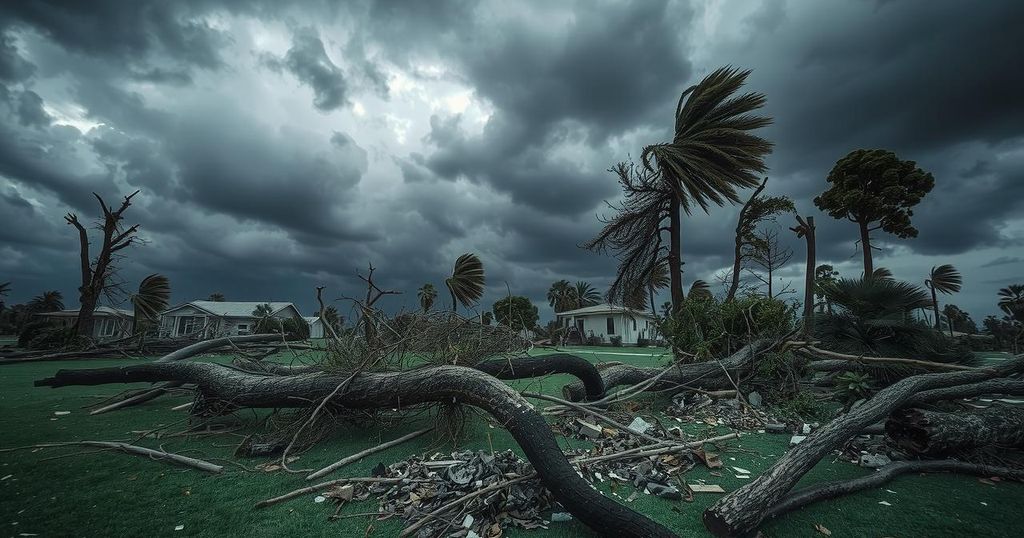World news
AFRICA, BAKER, CHI, COMOROS, DEATH TOLL, EMERGENCY RESPONSE, EUROPE/ASIA, FRANCOIS CORTY, FRENCH WEATHER, HELEN HOOKER, INDIAN OCEAN, JEAN -, LE MONDE, MALAWI, MAURITIUS, MAYOTTE, MET, MÉTÉO - FRANCE, MOZAMBIQUE, NATURAL DISASTER, NATURAL DISASTERS, OF, OF READING, REUTERS, TURKEY, U. K
Fatima Khan
0 Comments
Cyclone Chido Causes Catastrophic Damage in Southeast Africa
Tropical Cyclone Chido has caused devastation in southeast Africa, particularly in Mayotte and Mozambique, with death tolls potentially reaching thousands. Aid efforts are underway as cholera threats emerge. Meteorologists link the cyclone’s intensity to climate change, highlighting vulnerabilities of small island nations.
The devastating impact of Tropical Cyclone Chido has left southeast Africa in turmoil, particularly affecting the French territory of Mayotte and neighboring Mozambique. Initial reports indicate potential fatalities totalling in the thousands, with local authorities on Mayotte confirming at least 22 deaths and over a thousand injuries. However, many areas remain inaccessible, hindering comprehensive disaster assessments.
Meteorologist Alex Baker from the University of Reading noted that Cyclone Chido rapidly intensified before hitting Mauritius and reached a Category 4 intensity as it continued toward Mayotte and Mozambique. With the French government enforcing a curfew to maintain order, aid supplies including food, water, and medical resources are being delivered daily.
Reports from Médecins du Monde suggest a cholera outbreak is emerging on Mayotte, with director Jean-François Corty warning of impending epidemic risks without adequate water access. In Mozambique, casualties have also been reported, with at least 34 fatalities documented. The Comoros Islands have declared a week of national mourning, anticipating substantial death numbers.
The UN Office for the Coordination of Humanitarian Affairs states that Cyclone Chido has affected over 174,000 individuals in Mozambique, 34,000 in Malawi, and 64,000 in the Comoros. Météo-France announced that Chido is notably the strongest cyclone to impact Mayotte in over nine decades, while experts attribute the extensive damage faced by low-income communities to minimal resilience against such disasters.
The role of climate change in Cyclone Chido remains under review. Helen Hooker, a meteorologist at the University of Reading, indicated that record-high Indian Ocean temperatures contributed to the cyclone’s intensity, while Professor Liz Stephens emphasized the increasing severity of tropical cyclones in the southwest Indian Ocean due to climate change. This situation highlights the vulnerability of small island nations amidst ongoing environmental changes.
In summary, Tropical Cyclone Chido has wrought significant devastation across southeast Africa, particularly impacting Mayotte and Mozambique. Hundreds may be dead, with thousands affected by the ongoing humanitarian crisis. The potential emergence of cholera adds urgency to relief initiatives. Furthermore, discussions around climate change emphasize the increasing risks of such natural disasters, reinforcing the need for greater resilience among vulnerable communities.
Original Source: news.mongabay.com




Post Comment